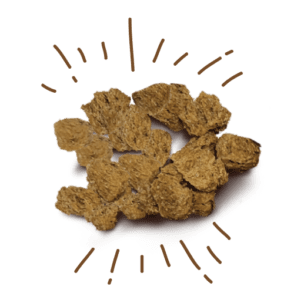Bernie’s Perfect Poop helps dogs get better sleep
There’s a saying that if the dog’s not happy, no one in the family is happy. When dogs cannot get good sleep, you don’t rest well either. How can Bernie’s Perfect Poop help dogs get better sleep?

- High-quality fiber can help your dog sleep better by helping him feel more full. Fiber not only helps your dog feel more full, but it also keeps food going through your dog’s digestive system at just the right speed. This means that your dog won’t be constantly triggered by hunger and can hunker down for a nice night time rest. It also means it helps balance your dog’s microbiome and regulates hormones that could make your dog sensitive to insulin, which may make his sleep restless too.
- Bernie’s Perfect Poop also combines prebiotics and probiotics to balance your dog’s gut microbiome. When your dog’s gut is healthy and balanced, it allows appetite-reducing hormones to be released in your dog’s body. Again, this means your dog isn’t constantly roaming around looking to fill his tummy. Research continues to find that the gut is like a second brain, and good dog gut health is key to good sleep and for maintaining immunity. Bernie’s prebiotics and probiotics encourage optimal dog gut health to keep your dog’s gut in shape and digestive health strong. Strong digestive health means better mood regulation and the ability for your dog to rest easy.
- Every cell of your dog’s body needs nutrients. If your dog is not getting enough nutrition from his food, he may have conflicting signals going on in his gut. Food that’s broken down efficiently can then be absorbed efficiently and lead to a healthier gut that sends proper signals for rest, relaxation and insulin control. When your dog is able to fuel his metabolism properly, everything from sleep cycle to glycolic interaction is regulated better.
- Bernie’s Perfect Poop is a 4-in-1 combination of fiber, prebiotics, probiotics, and enzymes. Bernie’s helps bring optimal gut health to your dog, and this means their overall health is in tip-top shape too. When dogs have the right gut health, they’ll be less prone to anxiety that may keep them up, or hunger that may drive them to look for food and overeat constantly. Good, restorative sleep is just as important to your dog as it is to us humans, and Bernie’s is the best way to help your dog have sweet dreams.



